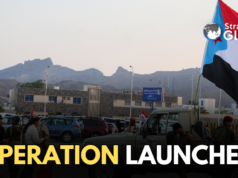Nearly a week after a landslide devastated the remote Enga Province of Papua New Guinea, officials in the Pacific Island nation are still in the process of evacuating residents, because the area remains unsafe. The conditions have prevented officials from bringing in heavy equipment to clear the debris and search for survivors. The circumstances also make it difficult to understand the true scale of the tragedy, with estimates of the death toll ranging from the hundreds to the thousands.
StratNewsGlobal spoke to Col Sandeep Shaligram (Retd), the CEO of Pacific International Hospitals to discuss rescue efforts.
Col Shaligram explains how the disaster, caused (on 24 May) by continuous heavy rainfall, has left an indeterminate number of people trapped or dead under the rubble, with estimates ranging from 640 to over 2000 affected individuals. As landslides persist, the unstable terrain hampers rescue operations, making it nearly impossible for first responders to access the areas.
The Colonel explains the immediate actions taken by his hospital chain, including the deployment of teams with specialized equipment and medical supplies, though access remains a significant challenge. Local and provincial governments, along with international aid from countries like Australia and India, are providing crucial support. Despite the difficult conditions, including impassable roads and lack of infrastructure, efforts are focused on rescuing and treating survivors while preventing outbreaks of secondary illnesses.
The viewer gets a glimpse of the logistical difficulties, due to the mountainous and forested terrain, with the nearest hospital being 150 kilometers away. Col Shaligram also notes that many affected areas lack proper infrastructure and are known for tribal conflicts, further complicating rescue missions. He discusses the hospital’s role in public-private partnerships to improve healthcare delivery in remote areas, leveraging telehealth systems to extend medical services.
Neelanjana Banerjee is a Broadcast Media Specialist with 23 years of cross-media experience in designing and producing content for television, radio and online media.
Having held a wide range of roles in various aspects of electronic media, she is a multifaceted professional and has an in-depth and hands on experience in broadcast
content, programming, media production, channel / product launch, TV and
radio skills training and online content.
Neelanjana was awarded the Chevening Gurukul fellowship in Leadership & Excellence from King's College, London in 2016.




